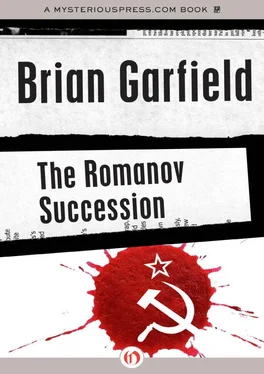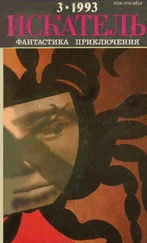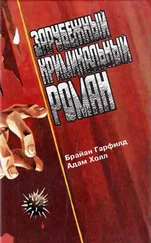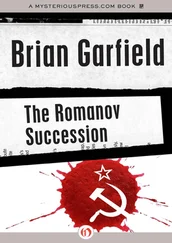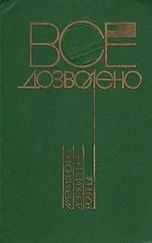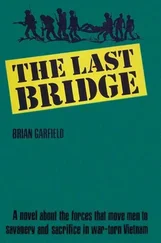“They’re not as good as Goering and Goebbels want us to think. The Spitfires have been handing it to the Messerschmitts.”
“Weren’t you in China?”
Johnson’s professionalism was total: it was a characteristic of good airmen. Anticipating the question Alex said, “There isn’t a plane in the world that can match the Japanese Zero.”
“I’ll tell you something, Colonel, you give me a B-Seventeen Fort and I’ll take my chances against those peashooters. You ever seen a Fort up close?”
“No.”
“Sweetest airplane a man ever built. We had a flight of prototypes for tryouts last year. You think we’ll be in this war, Colonel? I don’t think it’s going to be decided by Messerschmitts or Zeroes or anybody else’s peashooters. I think it’s going to be dogfaces and carriers and long-range four-engine bombers. That’s the three things that will decide it—the rest is all window dressing. It takes carriers to open the sea-lanes. It takes heavy bombers to flatten the enemy’s communications and supply lines. Takes the infantry to root him out and finish him. That’s the whole story of this war we’re looking at.”
Johnson had the earmarks of a long-distance talker but Alex listened with respect because the pilot was a shrewd man and obviously it was a thing to which he’d given a great deal of thought.
Alex said, “I’d add one thing to that list. I’ve seen panzers in action.”
“I don’t agree. That’s only tactics. You can stop a tank easy if you’re ready for it. They’re sitting ducks. Too many ways you can hit a tank. Let me tell you something—I put my squadron through a little experiment last year. We mocked up twenty tanks on the ground out at Camp Hunter-Liggett in the Mohave Desert and then we took off. We made a regular war game out of it—phony flak, the works.
“We plastered hell out of them. On the scorecard it was Air Corps fifteen, Armor nothing.” Johnson flashed a glance at him. “Low-level precision bombing, Colonel. You’re right on top of your target—hell you can’t miss if your bombardiers know their jobs. You know how good a target a big fat tank makes from fifty feet altitude?”
“What if they’d been real tanks—taking evasive action?”
“Tanks can’t maneuver that fast. They turn like bull elephants—catch them on rough terrain even the best panther tank can’t make better than fifteen, eighteen miles an hour. They’re sitting ducks. But the War Department gave me that same line. Christ I felt like Billy Mitchell. They told me to take my ideas and shove them. Well I guess that’s all right—when the time comes maybe I can talk them into taking out that report of mine and dusting it off. We’re not into the war yet, a lot of things are likely to change.”
Johnson guided the Ford smoothly through the main street of a small town. On the outskirts he put it back up to fifty and went swaying through the bends. Light rain began to bead up on the windshield. Alex said, “You can really pinpoint a target as small as a tank, can you?”
“It takes training, Colonel. I never said it was easy. But one of these days it’s going to help win this war.”
The train was jammed; he had to stand. It was a commuter express with stops at Princeton Junction and New Brunswick and Newark; filled with businessmen in black fedoras and wide snap-brims. There were soldiers on furlough and vacationing college students in ribboned bonnets and white shoes, giggling their way to New York where you could drink liquor at eighteen. The placards advertised Rupert’s Beer and the Radio City Music Hall feature, Gary Cooper in Sergeant York. Ivory Soap was 99.44/100ths% pure and Lucky Strike meant fine tobacco and the 1941 Lincoln Zephyr was the fine car for everyman. On the commuters’ newspapers the headlines bannered F.D.R. TO NATIONALIZE PHILIPPINE ARMY—Moves in Response to Jap Occupation of Indo-China. Mac-Arthur to Command.
Pushing through the crowd he carried his bag through throngs of redcap porters up the stairs and the long Penn Station ramp past the Savarin restaurant where middle-aged women sat in flowered hats watching the big railroad clocks.
Like battling stags two black Fords had locked bumpers in the center of Seventh Avenue and the boulevard was a tangle of hooting cars. He went through the station’s immense stone columns and made his way two blocks uptown to get out of the jam.
It was a five-minute wait and then he was riding uptown in a taxi with his B-4 bag on the seat beside him and his hand in the strap-loop: New York traffic always terrified him. Along Seventh Avenue the menials of the Garment District pushed their heavy clothes-hanger dollies through the tangle of trucks and cars and horsecarts.
The traffic in Times Square was intense and the big illuminated signs flashed at him painfully— I’d Walk a Mile for a Camel; Seagram’s for the Man of Distinction. Leather-throated newsboys hawked the Mirror and the Trib and tourists gawked at the enormous Paramount cinema palace.
The taxi had the peculiar De Soto smell of old leather and cigar ash. It decanted him in the semicircular drive before the Plaza and he hauled his bag into the oak-and-marble lobby. At the mail desk he identified himself and was handed a note on the hotel’s embossed stationery, neatly handwritten in the Cyrillic characters of the Russian alphabet:
“Alex—
You are booked in. Come around at eight o’clock to #917.—I.”
He puzzled it momentarily before he pocketed it and moved on to the reception desk. A clerk gave his uniform a glance of utter contempt. “May I help you?”
“Colonel Danilov. There’s a reservation for me, I think.”
“I’m not sure there’s—oh yes, here you are. Room Nine-nineteen.” Not troubling to conceal his disapproval the clerk struck his palm down on the counter-top bell. “Front!”
The bellboy had the red muscular face of an experienced Irish drinker. He regarded Alex’s single soft bag with displeasure, heaved it under his arm and took the key from the clerk. “This way sir if you please.”
On the ninth floor the middle-aged boy led Alex along the deep-carpeted hall to the northeast corner of the building and into a luxuriously spacious chamber that gave him a view of the whole of Central Park and across Fifth Avenue to the lights of the Pierre and the Savoy Plaza and the Sherry Netherland. The bellboy examined Alex’s twenty-five cent piece as if he suspected its worth and backed out of the room with a stiff bow.
Alex took his dop kit into the marble-tiled bathroom; washed and shaved and combed and emerged rereading the note. “I” could be Ivan or Igor or Ilya: there were numerous men with those names among his acquaintances in the White Russian exile organizations and families. It annoyed him a little: the passion for unnecessary conspiratorial secrecy.
A bottle of Polish vodka lay canted in a champagne bucket filled with ice. He lifted it out and brooded at the straw of buffalo grass that lay inside the sealed clear bottle. Someone knew his taste. He poured the two-ounce bartender’s glass full and downed it; replaced the bottle and settled into a chair, and waited. He neither smoked nor drank again; he only waited.
At eight he went out, turned to Room 917 next door in the hall and knocked.
“Yes?” A woman. “Who is it?”
His host had company then. Alex contained his impatience—made his face blank. “Colonel Danilov.”
He heard soft footfalls on a carpet. A key turned in the lock and the door pivoted to disclose a stunning dark-haired woman in red.
His face changed. “Irina.”
Irina Markova smiled. “Come in, Alex, don’t stand there looking like a stunned schoolboy with his hat in his hand.”
Читать дальше
